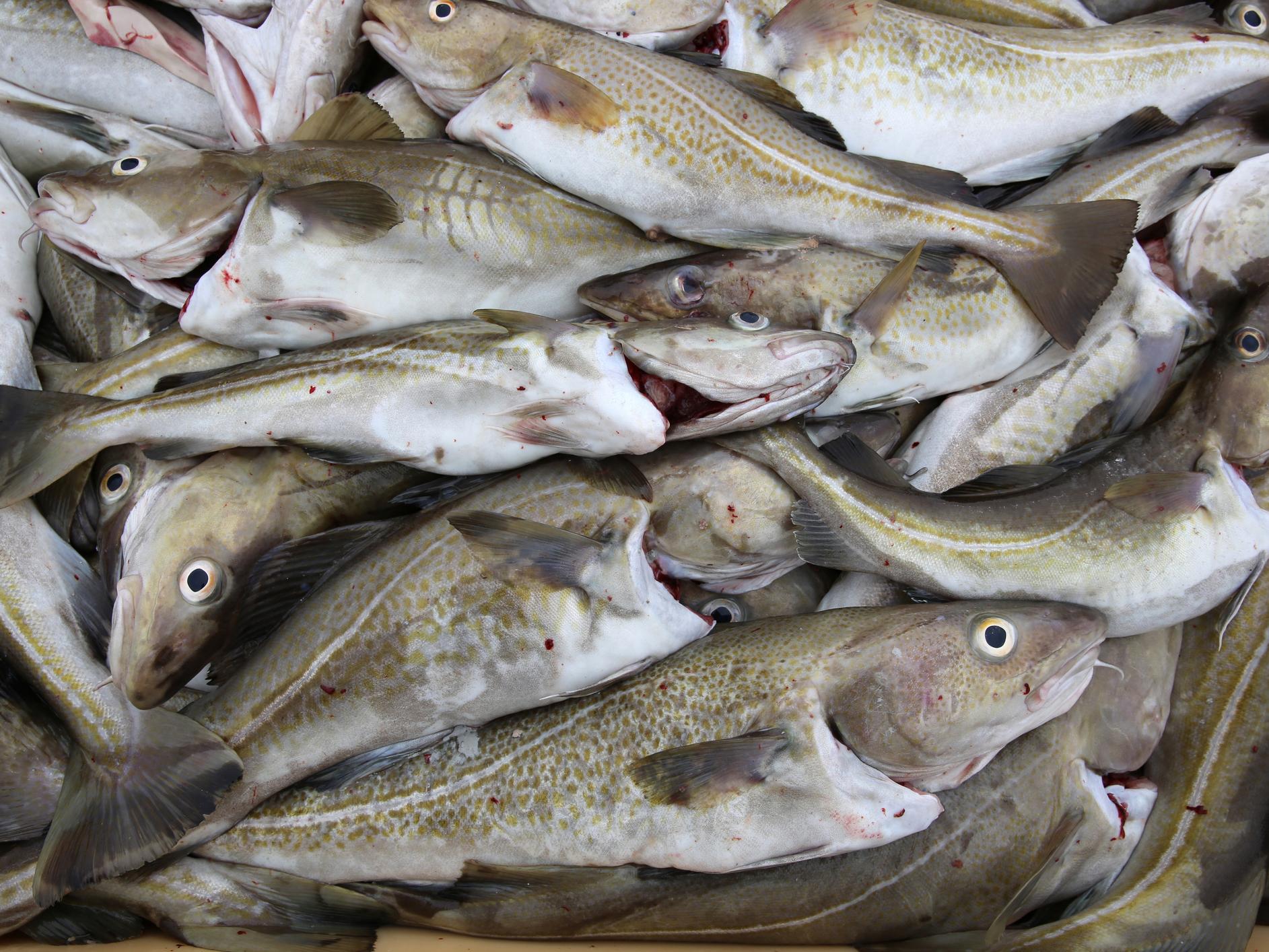Climate change could cause toxic mercury to accumulate in seafood, study warns
Children are particularly at risk from fish-derived mercury while their brains and nervous systems develop

Climate change could cause levels of toxic mercury in seafood such as cod and tuna to increase, scientists have warned.
Around four-fifths of the mercury put into the atmosphere from natural and human causes, such as burning coal, ends up in the ocean. It is then converted by tiny organisms to a particularly dangerous organic form known as methylmercury.
As small creatures are eaten by larger ones, mercury becomes more concentrated up the food chain.
As the seas warm, fish like cod are using more energy to swim which requires more calories – so they are eating more and storing up more of the toxin.
Methylmercury can affect brain functions in humans. Children may be especially at risk from exposure to fish-derived mercury while their brains and nervous systems are developing in the womb.
While regulation to curb emissions of mercury are leading to decreases in the concentrations of the toxin in fish, rising ocean temperatures due to climate change are predicted to push it up again.
The researchers from Harvard John A Paulson School of Engineering and Applied Sciences and the Harvard T H Chan School of Public Health modelled the changes in mercury emissions.
Their computer modelling predicts an increase of 1C in seawater temperatures compared to how warm it was in 2000 would lead to a 32 per cent increase in methylmercury levels in cod and a 70 per cent increase in spiny dogfish.
Even with a 20 per cent decrease in methylmercury in sea water as a consequence of reductions in emissions, a 1C temperature rise would lead to increases of 10 per cent in cod and 20 per cent in spiny dogfish, the researchers said.
They also analysed the effects of recent ocean warming from a low in 1969 on concentrations of the mercury in Atlantic bluefin tuna and found it could contribute to an estimated 56 per cent increase in levels in the species.
Changes in the diet of species including cod and spiny dogfish as a result of overfishing of their food sources such as herring can also affect how much methylmercury they are consuming and storing in their bodies.
Researchers looked at the impacts of overfishing which changes what top predators eat, such as reducing how many large herring cod are eating. Their study, based on three decades of data from fish and seawater from the Gulf of Maine is published in the journal Nature.
Concentrations of the toxin in cod increased by up to 23 per cent between the 1970s and 2000s as a result of dietary shifts initiated by overfishing and then a recovery of herring populations, scientists say.
Up to 17 per 1,000 children from subsistence fishing communities in Brazil, Canada, China, Columbia and Greenland have been shown to suffer from mental impairment due to the consumption of mercury-contaminated sea food, according to the World Health Organisation.
Elsie Sunderland, a senior author of the paper, said: “We have shown that the benefits of reducing mercury emissions holds, irrespective of what else is happening in the ecosystem.
“But if we want to continue the trend of reducing methylmercury exposure in the future, we need a two-pronged approach.
“Climate change is going to exacerbate human exposure to methylmercury through seafood, so to protect ecosystems and human health we need to regulate both mercury emissions and greenhouse gases.”

Professor Sean Strain from University of Ulster, who was not involved in the research, said the suggestions made in the paper looked accurate.
He said: “The modelling and calculations appear to be solid, based on good quality science, and would support the suggestion by the authors that these modelled potential increases in methylmercury in cod and other fish species would be owing to overfishing and global warming.”
However, he said the claim that a 23 per cent increase in mercury in Atlantic cod could be a threat to human health was contestable.
Dr Emeir McSorley, also from Ulster University and not involved in the research, said: “Mothers in the Seychelles are exposed to methylmercury concentrations at least 10 to 100 times greater than fish consuming mothers in Western countries and yet we have consistently found no adverse associations of methylmercury with neurodevelopment in three mother-child cohorts.
“Indeed, the children born to mothers with the highest methylmercury exposures were undertaking some developmental tests better than those born to mothers exposed to lower methylmercury. We interpreted these findings as indicating that the benefits of fish consumption during pregnancy outweighed any risks.”
Join our commenting forum
Join thought-provoking conversations, follow other Independent readers and see their replies
Comments
Bookmark popover
Removed from bookmarks